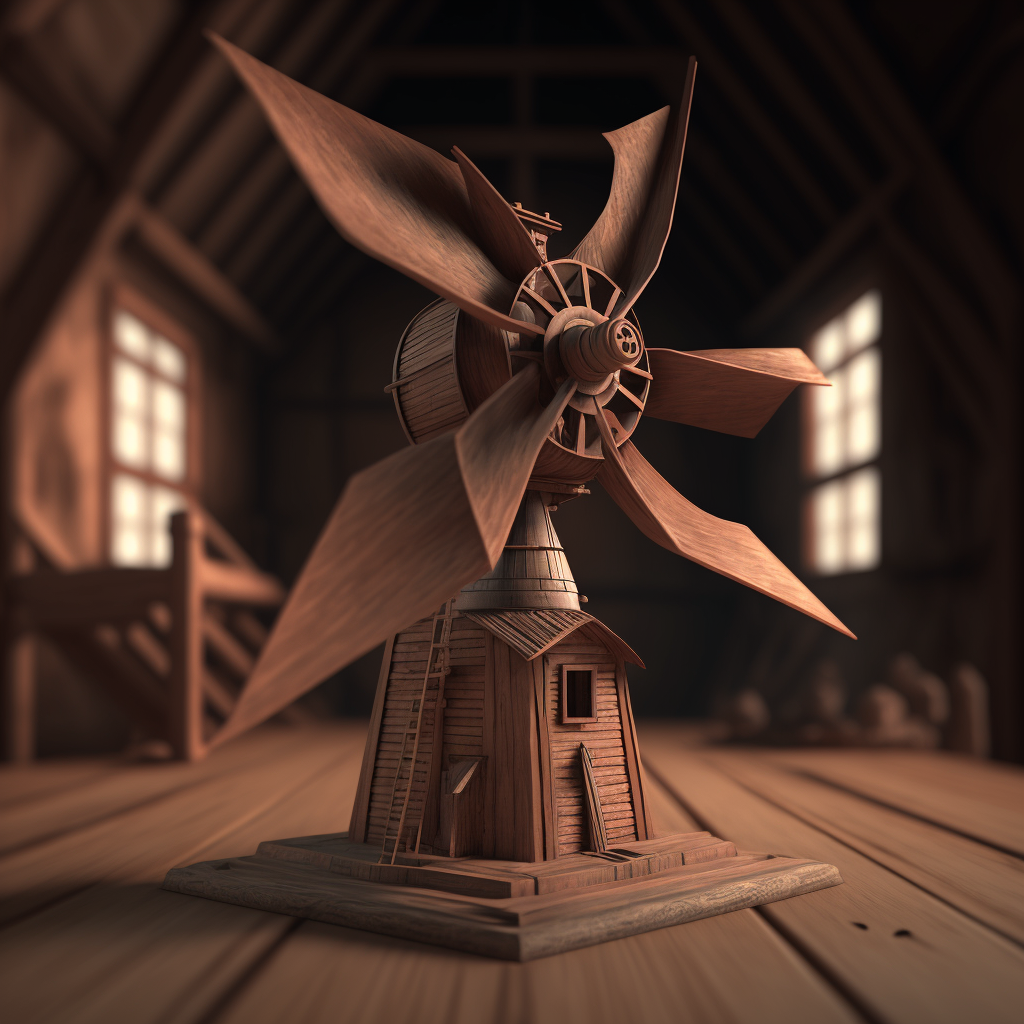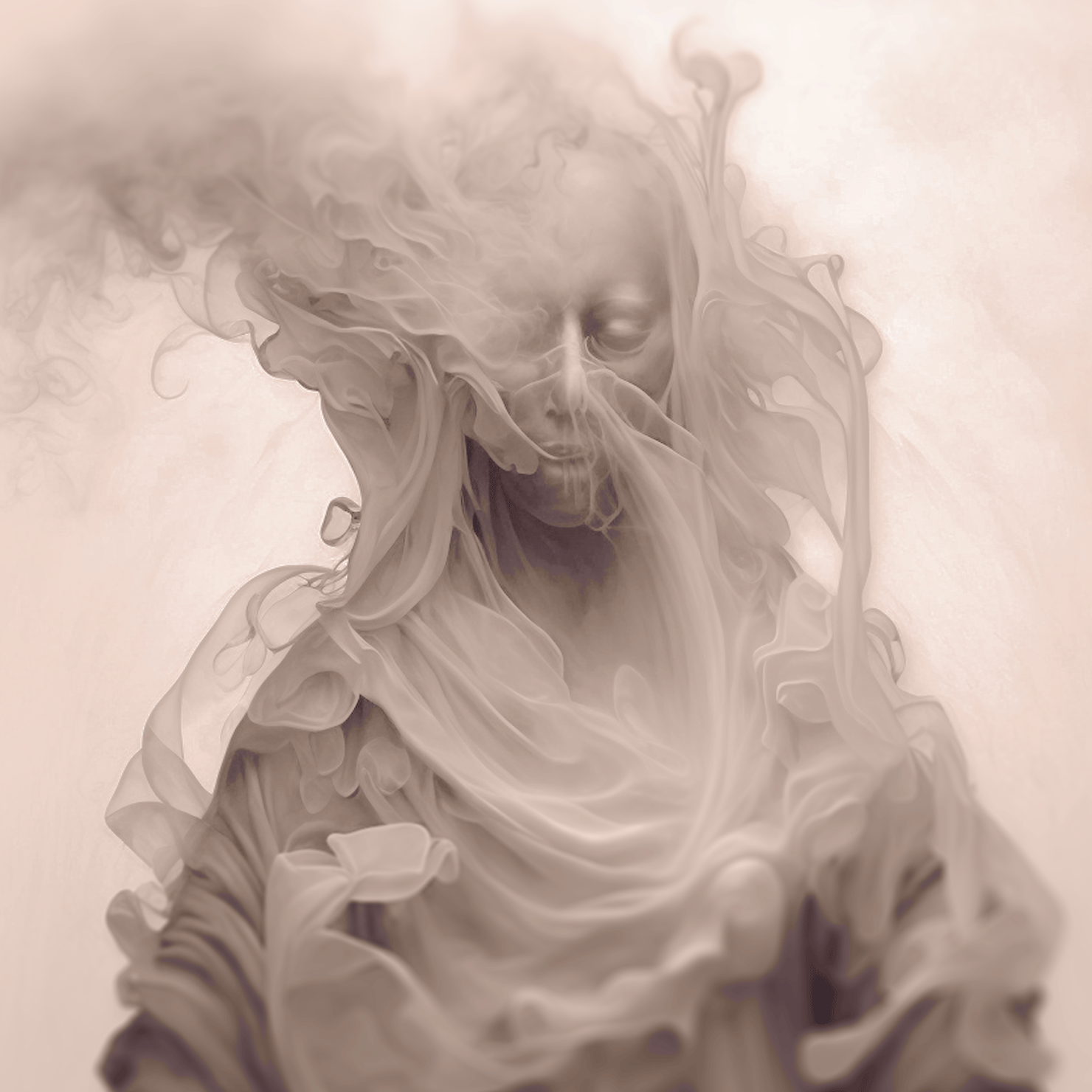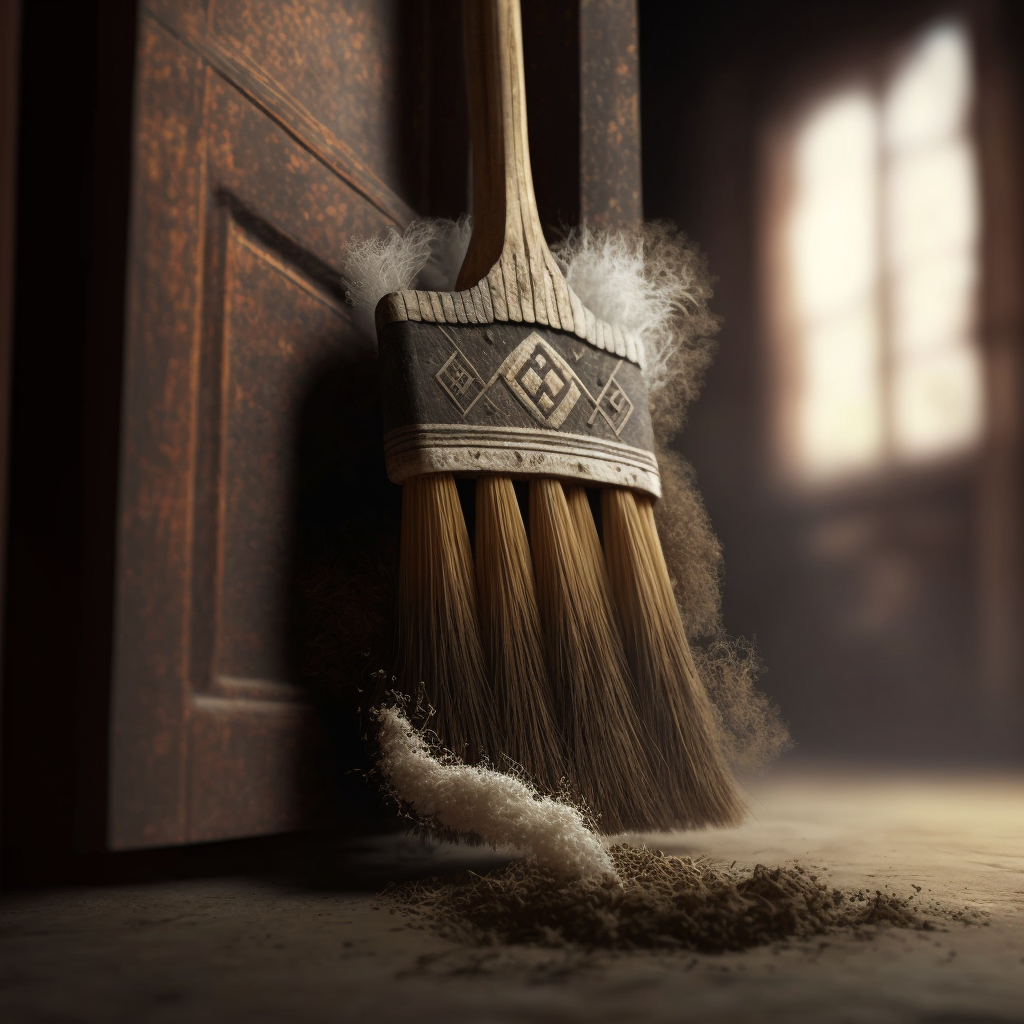Moji are everyday items of personal and ancestral significance to the kingroups of the Uferbrech Goblins. They are imbued with the magical and spiritual energy of the many individuals who used them during their lives, and are a key connection that binds
Ancestor Spirits to their living descendants.
Diverse and mundane forms
The objects themselves can be anything that was of personal significance to the dead during their lives. They can range from pottery, weapons and armor, decorative ornaments, brooches or necklaces, favourite clothing or hats, cutlery and crockery, trade tools, musical instruments, carved figurines - literally anything.

by Midjourney
Across the clans, there are certain items that more commonly become Moji. The goblins of Clan Tokaru often have wind chimes or ornamental windmills as their kingroup Moji, while
Clan Motu will have bowls, figurines or armour made from
Coral Glass, and
Clan Telela favour items such as walking sticks carved from the redwood trees of their island, or the metal tools they use to carve the wood.
Priceless heirlooms
Moji are priceless heirlooms for goblin families, holding within them the most personal and culturally significant relevence due to their literal connection to dead ancestors.
Powerful artefacts
Some can hold incredible power when wielded by a living relative, as the sprititual energy of their ancestors can be channelled trhough them.
This energy increases over the generations, as speicifc peices gain singificance through multiple lives of descendants.
Spirit binding
During the
Funeral rites of the Uferbrech Goblins, the Moji are used to keep the spirit of the dead (
Kahi, Ancestor Spirits) from becoming a lost and wandering soul. Their spirit becomes (willingly) bound to the object, and older objects may have many Kahi bound to them.

by Midjourney
Like any group of individuals, these bound Kahi can exist together harmoniously, or have periods of disagreement and even moments of conflict.
Moji personalities
A Moji with multiple spirits bound to it, can develop its own unique personality. Sometimes this is an amalgam of the various spirits, or it may develop multiple emergent personalities as the bound spirits form factions. These personalities can be as varied and complex as any living person - if not moreso.
In some cases, the central personality acts as a mediator or concierge for the many idnviduals within - acting as a helpful guide. In others, the personality may be mischevious or domineering, they might silence other bonded spirits, and even share lies for whatever ends it has.
Atunement
Living descendants can, with training and practice, atune themselves to the Moji, and gain access to the sprititual power of their ancestor spirits through it.
Atunement requires the willing acceptance of the living person by the spirits bonded with the object. Usually this at least requires the wielder to be related to them, though there have been rare moments where the spirits of a Moji have accepted people not related them.
Atunement also requires a conversation with the dominant or emergent personalities of the Moji. This can be quite casual, depending on the nature of the bound spirits, or it can be quite involved.
Relationships between the user of the Moji and its bonded spirits can be as complex and frustrating as an extended family reunion. Old slights might be revisiting, disaproving spirits will comment on the living person's actions (or inactions) in life, or demand favours such as moving the Moji itself to a better vantage point in the home, or visiting a location favoured in life. These demands can be petty, meaningful, or just outright confounding and weird.
Atunment is a continuous activity with a Moji - not something that happens once. The connection can be severed by the spirits within the object, and the magical powers it channels can be removed at will.
Channeling
Once atuned, and with the support of the spirits within, a person can access and channel the powers of the bonded spirits. This is a form of
Blood magic and can enable great feats of transmutation of matter or the unleashing of energy. The extent of the effects relies on the age of the Moji, and the number of spirits that are bonded.
Lost Moji
One of the greater tragedies of the invasion of the Uferbrech Archipelago is that many of the Moji have been lost, or even stolen by the invaders.
Stolen
Often without even realising their significance, a veteran of the Uferbrech wars may have taken home what they thought of as a trinket as a souviner. A hand carved Moji bowl now lies dormant on a kitchen bench of a retired soldier in Helton, or a Moji necklace now adorns the neck of a nobleman's daughter as she graces the stage of her Choosing in the courts of New Lafaelle.
These stolen Moji are usually dormant, the bound spirits refusing to cooperate with their captors. They often use their energy to perform minor torments and ill-luck upon them. Anything from the spoiling of food or hiding coins, and sometimes as serious as weakening structural supports of the buildings in which they are housed. They might haunt the dreams of their captors, slowly driving them insane with paranoia and chronic fatigue.
Thralled and unbonded Moji
The magics of the Moji prevent them from being easily broken through accident or misuse. The spirits bound to them protect the object. However, some academics within the
Protectorates have discovered the true nature of them, and have learnt ways to siphon the energies through force - essentially using the Moji as a
Blood Thrall.
Many will destroy the object to release the magics in one explosive hit, but others have learnt to siphon the energies a bit at a time - a long and torturous experience for the bound spirits.
Eventually, this siphoning will deplete the Moji of its energy, and unbind the spirits. Once unbounded, these
Kahi become lost and malevolent Kothkahi, or Nagakahi. They may turn on their captors, or simply escape to haunt any they come across in their madness.
Reclaiming lost Moji
Most of the lost Moji have come from the clans displaced by the Protectorate invasion:
Clan Otenkari and Clan Tokaru.
The diaspora of Clan Otenkari who live in
Sudengard, with the support of the new Lord Protector,
Rue du Col, have long agitated for the return of the stolen Moji. There is a concerted effort by them to pressure the Academics and others to give back what they have stolen, and a growing number of Moji being returned.
Many across the more traditional Protectorate cities refuse to do so, and there is a growing spate of breakins and even violent crimes as the more brazen of the golbin kin attempt to take back their Moji by force.







Very nice! :-)
Check out Shadowfire and my Adventure April challenge
And I'm a bit blown away by the effort... your Worldember goal of 10k in comments is amazing :)
Check out Shadowfire and my Adventure April challenge